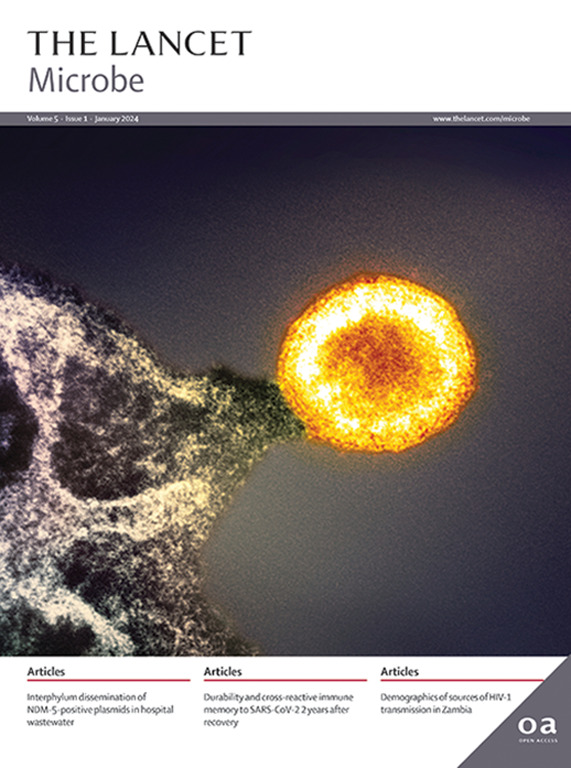肠道微生物群如何成为对抗多重耐药微生物的目标?
IF 20.4
1区 生物学
Q1 INFECTIOUS DISEASES
引用次数: 0
摘要
抗菌素耐药性的上升对公共卫生构成了挑战,破坏了抗生素的功效,并危及传染病的管理。耐多药微生物(如耐多药肠杆菌和耐万古霉素肠球菌)的肠道定植与发病率和死亡率增加以及卫生保健费用增加有关。最近,肠道微生物群在对抗多药耐药菌定植中的作用引起了人们的兴趣,多药耐药菌定植可能发生在侵袭性感染之前。创新的干预措施,包括粪便微生物群移植、益生菌、噬菌体治疗和细菌联合体,代表了潜在的预防或治疗选择,以对抗多药耐药菌的定植。在本个人观点中,我们综合了这些干预措施的当前研究结果,并阐明了它们作为抗微生物药物耐药性危机解决方案的潜力。本文章由计算机程序翻译,如有差异,请以英文原文为准。
How can the gut microbiome be targeted to fight multidrug-resistant organisms?
The rise of antimicrobial resistance presents a challenge to public health, undermines the efficacy of antibiotics, and compromises the management of infectious diseases. Gut colonisation by multidrug-resistant organisms, such as multidrug-resistant Enterobacterales and vancomycin-resistant enterococci, is associated with increased morbidity and mortality rates, as well as health-care costs. Of late, the role of the gut microbiome in combating colonisation by multidrug-resistant organisms, which could precede invasive infection, has garnered interest. Innovative interventions, including faecal microbiota transplantation, probiotics, phage therapy, and bacterial consortia, represent potential preventive or therapeutic options to counteract colonisation by multidrug-resistant organisms. In this Personal View, we have synthesised the current findings on these interventions and elucidated their potential as solutions to the crisis of antimicrobial resistance.
求助全文
通过发布文献求助,成功后即可免费获取论文全文。
去求助
来源期刊

Lancet Microbe
Multiple-
CiteScore
27.20
自引率
0.80%
发文量
278
审稿时长
6 weeks
期刊介绍:
The Lancet Microbe is a gold open access journal committed to publishing content relevant to clinical microbiologists worldwide, with a focus on studies that advance clinical understanding, challenge the status quo, and advocate change in health policy.
 求助内容:
求助内容: 应助结果提醒方式:
应助结果提醒方式:


